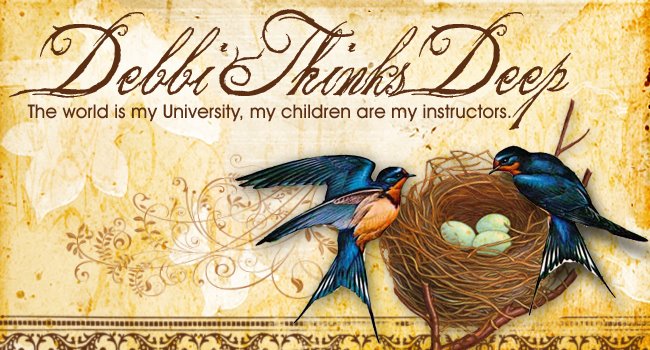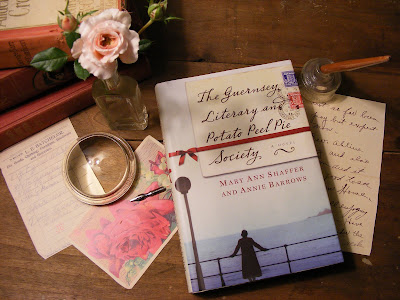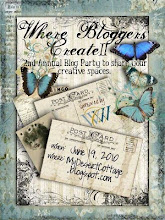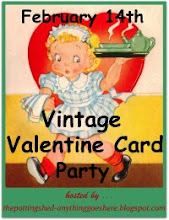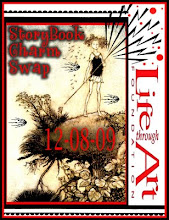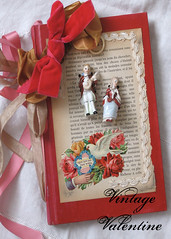You know, of all of my bulk email, there is only one that I read from cover to cover, so to speak. I love it when my Border's ad comes. Besides that there is always a coupon in it, they introduce new books and CDs, often including video interviews with the authors or artists. Many hours of entertainment have begun there.
Last week,
intrigued by a title, I clicked on a link to an
excerpt. It was
The Guernsey Literary and Potato Peel Pie Society. Can you see what piqued my curiosity? The book is written in the form of letters. . . correspondence. . . you know, those things written with a pen and paper. . . mailed with a stamp. I am kind of an Anglophile and couldn't help myself when the selection referred to London and the Thames, Bath, Oxford, and riding the trains. Resistance was futile. I could see it. . . feel the rocking of the train. . . smell the river. . . feel that cold, cold air. . . and I could not wait to get my hands on the book. I reserved it before I left the site. Sam and Amy picked it up when they ran into town the next day.
A day or two later I kind of accidentally ;) picked up the Guernsey Literary, etc. Society. I was just going to read a bit before I got on with my housework. . . just dip my toes in the water, so to speak. . . and the next time I was aware of myself it was almost dark and the book was done! And I was sorry! I didn't know what happened! . . . . . . I can't stop thinking about it! I find ways to make references in conversations where the references don't belong. In doing so, I realize that the person I'm talking to hasn't read the book, so I educate them. . . I have become a pest. I encourage everyone that will listen to read it. I'm a maniac!
And I don't want to put it away. I'm not ready to put it on the bookshelf. I want it on the table so I can look at it and remember. . .
Here is a sort of introduction to the story. . . . . . During World War II, Guernsey, a British Channel Island, was occupied by the Nazis for five years. All communications with the outside world were severed.
The story revolves around a book author, Juliet Ashton. She is attempting to find a topic for her next book when she receives a letter from a gentleman on the newly liberated island. Having had no outside contact for five years, he is hungry for fresh literature, especially another book by Charles Lamb. He owns one, and it has Juliet's name and address inscribed on the flyleaf..... she is the only person that he "knows" in London. Could she kindly put him in touch with a bookseller? Thus the beginning of the correspondence between the
Guernsey Literary and Potato Peel Pie Society, and the fictional book author.
I was captured by the early references to places that I had visited, but the story quickly transitioned to the island south of England. . . . in 1946.
I was so completely transported to this place and time. . . aside from my kind of zealous imagination. . . . . . it was partly because Mom, the
Elizabeths and I had just been to the State Theatre, downtown, to see
Miss Pettigrew Lives for a Day. The bunch of us had been counting the days till it came out on video. The movie took place immediately prior to World War II. So you see, between the book, the movie, and our recent trip to England. . . I could feel it, I could see it, I felt as though I could almost touch it. I felt the attitudes, the music, I could imagine the colors, the clothing, the smells, the feel of the streets, the beaches, the fields. . . . . . my imagination really needs very little assistance, you can fancy where I was with all of that inspiration.
As I read the letters I felt as though I removed each one from a yellowed envelope, crisp with years; unfolded each delicate sheet of onion skin, and I read them. I read with the attention due an historic document. It kind of felt like I really shouldn't.
What more can I say? I don't want to tell too much!
Oh, read it. Just read it!
 These are a few of my favorite things. They really do make me want to sing and dance about.
These are a few of my favorite things. They really do make me want to sing and dance about. My Gene Stratton Porter books. . . and other wonderful things.
My Gene Stratton Porter books. . . and other wonderful things. Grandma Seastrand's sugar jar stuffed with a lifetime of shell seeking.
Grandma Seastrand's sugar jar stuffed with a lifetime of shell seeking. A precious gift from one of my girls :)
A precious gift from one of my girls :) I just can't help but collect feathers when I see them. The pretty yellow feathers are from Zach's 19 year old cockatiel. Sometimes he will toss a couple out of the cage for me. The egg shells were collected from our lawn.
I just can't help but collect feathers when I see them. The pretty yellow feathers are from Zach's 19 year old cockatiel. Sometimes he will toss a couple out of the cage for me. The egg shells were collected from our lawn.
 Grandma Seastrand's sugar jar stuffed with a lifetime of shell seeking.
Grandma Seastrand's sugar jar stuffed with a lifetime of shell seeking. A precious gift from one of my girls :)
A precious gift from one of my girls :) I just can't help but collect feathers when I see them. The pretty yellow feathers are from Zach's 19 year old cockatiel. Sometimes he will toss a couple out of the cage for me. The egg shells were collected from our lawn.
I just can't help but collect feathers when I see them. The pretty yellow feathers are from Zach's 19 year old cockatiel. Sometimes he will toss a couple out of the cage for me. The egg shells were collected from our lawn.
